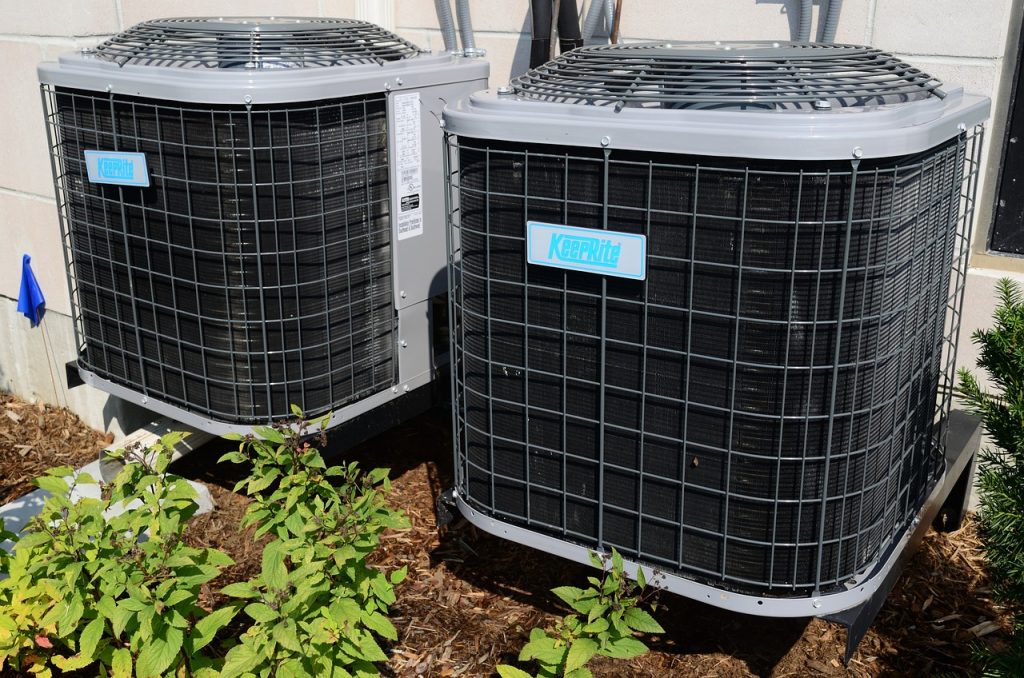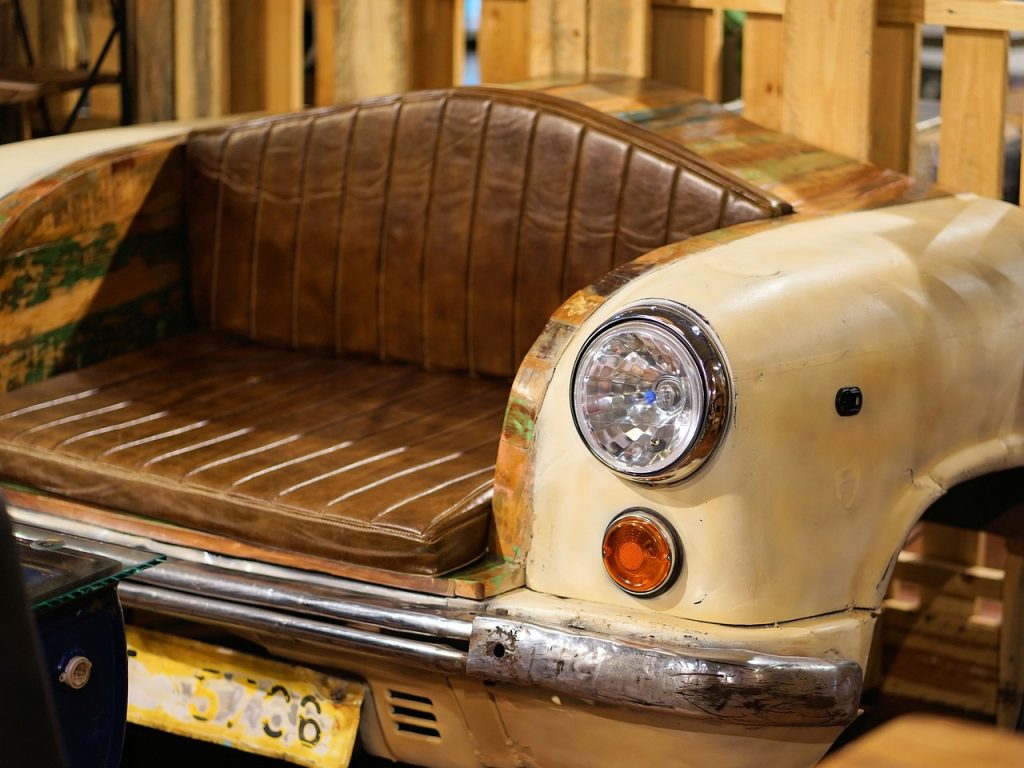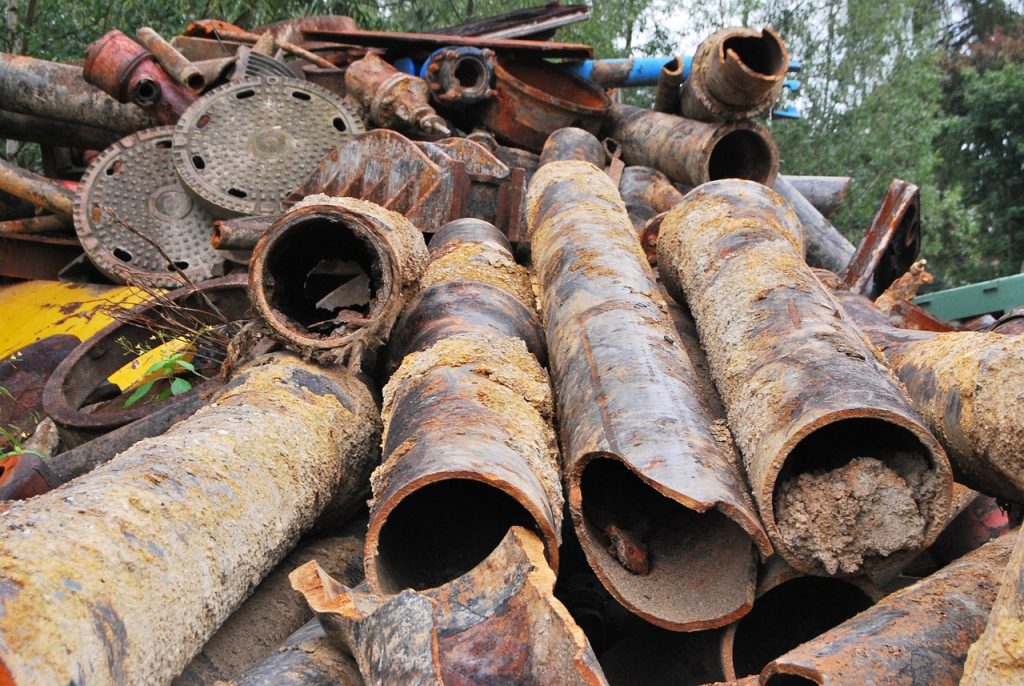- Ensure the air conditioner isn’t repairable before recycling.
- Locate a specialized recycling facility that accepts air conditioners.
- Disconnect the AC and safely dispose of the refrigerant in accordance with environmental protection guidelines.
- Separate the recyclable parts of the air conditioner, such as metals and plastics.
- Use municipal recycling services with separate bins for each type of material.
- Ensure specific disposal methods for parts that may release harmful substances.
- If recycling isn’t an option, seek disposal services from repair companies that adhere to safety and environmental regulations.
Understanding the Disposal of Air Conditioners and Importance of Recycling
Disposing of air conditioners isn’t as simple as tossing them in the trash. It’s important to understand that air conditioners contain refrigerants which can be harmful to the environment if not properly handled. Hence, the act of disposal is more complex than one might initially believe. Unlike other household items, you can’t just dispose of air conditioners without a second thought. Instead, you’ll need to carefully consider how to go about it.
When air conditioners become old, worn out, or broken, many people don’t always know what to do. The question often arises: should these air conditioners be recycled or disposed of in another way? The answer is they should be recycled. It’s not only a good idea, it’s also the law in many areas. In fact, illegal disposal can result in hefty fines. This might seem extreme, but it’s important to understand that this is done for the sake of the environment and public health.
All over the world, the improper disposal of air conditioners is a major contributor to the emission of potent greenhouse gases. This is why several countries have rules in place that regulate how air conditioners should be disposed of. These laws help to prevent old air conditioners from ending up in landfills where they can leak harmful substances into the earth and the atmosphere. In many jurisdictions, it’s mandatory to recycle air conditioners once they’re no longer functional.
Recycling air conditioners isn’t merely about breaking them down into pieces and reusing the materials. Instead, each air conditioner has to be carefully dismantled so that the dangerous refrigerants can be safely removed and properly handled. It’s only after this that the other components like metal parts, plastics, and electronics can be recycled. Hence, to recycle air conditioner involves a lot of safety precautions and careful work.
Despite the work, recycling old air conditioner units is worth it. This process ensures that the precious components in the devices are not wasted, but instead find new life in other products. By recycling air conditioner units, you’re allowing a high volume of materials to be reused. Furthermore, it’s a sustainable and environmentally friendly solution to get rid of an old air conditioner.
However, not all parts of an air conditioner are recyclable. Even so, the vast majority of the machine can be recycled, making this option far better than simply disposing of the whole unit inefficiently. So, when you’re dealing with an old, broken, or unwanted air conditioner, remember the importance of recycling. It’s not just about following the law, it’s about helping the planet remain sustainable for future generations. So, if you’re unsure what to do with your old air conditioner, seek out a company that specializes in air conditioner recycling. Do your part for the environment.
How to Recycle an Air Conditioner: Steps in the Approach
If you’re looking to recycle your old air conditioner, it’s important to know the right way to go about it.
Primarily, understand that air conditioners contain chemicals harmful to the environment and should not just be dumped. It’s crucial to use services that help in recycling effectively, preserving valuable resources. These services extend into repairing such products, giving them extended life and preventing needless waste.
First, before you recycle, it’s pertinent to ensure that the air conditioner isn’t something that can be repaired. Sometimes, minimal repair or part replacement can revive the appliance, reducing the demand for new products. Repair services can conserve resources and save money, often proving to be a win-win.
Should the air conditioner be beyond repair, locate a recycling facility that offers services to recycle these specific products. Not all recycling services accept air conditioners due to their refrigerant chemicals, therefore, research beforehand is essential. Also, disconnect the AC and safely dispose of the refrigerant as per the environment protection guidelines, as this is a critical part of the process to recycle.
Next, separate the air conditioner’s recyclable parts. Metals such as copper and aluminum can be extracted and recycled, whereas plastics and foams must be separated and processed differently, making the step vital to recycle. Additionally, the municipal recycling services usually have separate bins for each type of material. Again, remember that some parts may require specific disposal methods to ensure that no harmful substances are released into the environment.
In the event that recycling isn’t an option due to location or other constraints, there may be other resources available to you. For instance, some repair services also offer disposal services. These companies will safely dismantle and recycle your air conditioner, ensuring that they adhere to all safety and environmental regulations.
In conclusion, the approach to recycle air conditioners protects our environment while conserving valuable resources. It’s an approach that blends safety, convenience, and ecological responsibility, leveraging services and resources to keep products in circulation for as long as possible. It’s a reminder that recycling isn’t just about elimination – it’s about reimagining what products can offer in their extended lifetimes.
Dealing with HVAC and Room Air Conditioner Disposal
Dealing with an old air conditioning (AC) unit may seem like a daunting task, but it’s an important part of disposal. Be it a centralized heating, ventilation, air conditioning (HVAC) unit or a simple room air conditioner, the task of disposal needs to be handled with care and attention.
Most people aren’t aware of this, but air conditioners are one of those items that aren’t that easy to dispose of. They can’t simply be left out with regular trash due to the harmful substances they contain such as freon, a coolant that’s illegal to release into the air. All this makes air conditioner disposal a significant part of the recycling process.
You may wonder how best to handle the disposal of an old AC unit or HVAC system that’s no longer in use, has broken down, or simply needs upgrading – that’s where recycling comes into play. When we talk about HVAC and AC unit recycling, we’re referring to the process of reusing and repurposing as many parts and materials from the old HVAC or room air conditioners as possible. This ensures that the impact on our environment is minimized.
Before you start, it’s essential to know that handling certain components of an AC unit or HVAC system requires special equipment. There’s a high risk of exposure to harmful substances such as freon which, as already mentioned, is extremely damaging to the air and environment at large. Therefore, it’s best to leave this part to professionals in the field of air conditioning unit disposal.
At this point, you’ve probably realized that the process is not as simple as filling up a bin and leaving it on the curb and there’s no universal approach to dealing with HVAC and room air conditioner disposal. Each unit is different, with distinct parts and materials that require individual treatment. Therefore, this approach might not apply to every air conditioning unit.
However, here’s a basic guideline: First, remove any reusable parts of the unit, such as metals, plastics, and certain electronic components. Next, dispose of the left-over shell of the unit in a way that’s compliant with local waste disposal regulations.
To conclude, dealing with HVAC and room air conditioner disposal is not a simple task but it’s an essential step in protecting our environment. It’s important to remember that despite the challenges, we all have a crucial role to play in ensuring proper disposal and recycling of old air conditioners and HVAC systems. By doing so, we help to maintain the quality of the air we breathe and contribute positively to the health of our planet.
Recycling of Old AC Units: Managing Air Conditioning Waste
Recycling old AC units is a significant step in managing air conditioning waste. It’s a fact that we can’t overlook – a substantial amount of waste is generated from aged and worn-out air conditioners. It’s imperative we turn our attention to the recycling of these units, demonstrating our commitment to meet environmental responsibilities. By recycling air conditioning units, we reduce waste and alleviate environmental pollution, giving our planet a bit of respite.
Dealing with an old AC unit isn’t a walk in the park. The process entails more than merely unplugging the unit and shoving it into a recycling bin. Various health and environmental hazards are tied to the careless disposal of air conditioners. Therefore, adopting a responsible approach to managing air conditioning waste is non-negotiable.
Understanding the recycling process is crucial. You can’t simply deal with an AC unit like other waste. As previously mentioned in this article, an air conditioning unit is disassembled. Why? Inside an AC unit lies a series of valuable materials which can be utilised elsewhere instead of going to waste. These materials include metals, plastic, and even some toxins which, if inaccurately disposed of, contribute significantly to environment pollution.
If we’re to manage air conditioning waste effectively, we must ensure proper disposal procedures. This involves the separation of materials in the air conditioning units, chemical treatment, and waste management. It doesn’t stop at disposing of the AC unit in an environmentally friendly manner – what about the extraction of value from that unit? The concept of ‘waste to wealth’ is increasingly relevant, considering the finite resources on our planet.
Local recycling programs are a handy resource in direct AC unit disposal. These programs steer you toward responsible recycling and disposal methods, helping you contribute to reducing environmental footprint. You could engage in recycling programs that specialise in handling AC units, ensuring they’re not tossed aside carelessly.
In other words, the recycling of AC units isn’t just about eco-friendliness; it’s also about resource optimisation and proper waste management. Old AC units, with their wealth of materials, embody opportunities for recycling initiatives that, in turn, fuel the green energy sector. Recycling these units minimises the air conditioning waste that otherwise leaches into the environment.
With the rise in environmental consciousness and green consumerism, learning how to recycle air conditioners is vital. Let’s promote a cleaner, safer world by managing air conditioning waste responsibly, ensuring a bright future for generations to come.




